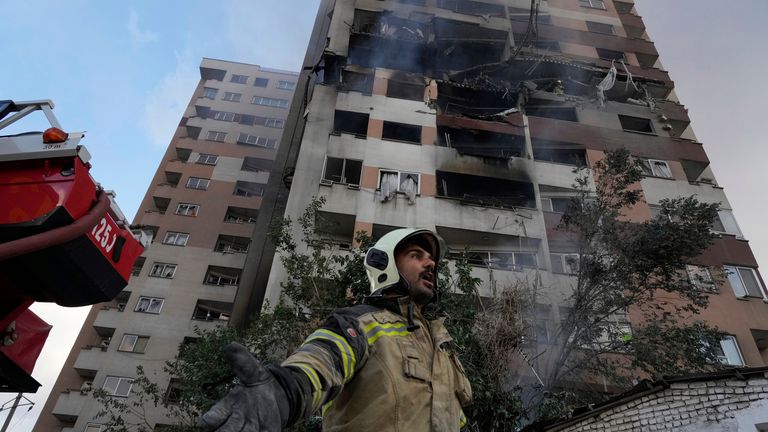United States of America President, Donald Trump, has expressed that the country will get involved in the ongoing Israel-Iran conflict and that he would be “open” to Russian counterpart Vladimir Putin being a mediator.
Trump said this while speaking with newsmen on Sunday, and addressing the Iran-Israel conflict.
He said, “It’s possible we could get involved” in the ongoing battle between the Middle East arch-foes, Trump said.
He, however, stressed that the United States is “not at this moment” involved in the military action.

The president added while answering questions from ABC news reporter, “as for Putin being a potential mediator in the conflict, he is ready. He called me about it. We had a long talk about it.”
Israel and Iran exchanged intense airstrikes for the third consecutive day on Sunday, as both sides escalated their attacks, resulting in a growing number of casualties. Israel’s latest offensive targeted Iran’s nuclear and military facilities in an attempt to severely weaken its capabilities, which prompted fresh retaliatory strikes from Tehran.
Meanwhile, diplomatic efforts aimed at defusing the tension took a hit. Oman, often acting as an intermediary on nuclear negotiations, announced that the sixth round of planned talks between Iran and the United States for the weekend had been called off.
Despite the setback, former U.S. President Donald Trump maintained that negotiations were still ongoing. In an interview with ABC, Trump dismissed any notion of a looming deadline. “No, there’s no deadline,” he said when questioned about a timeline for Iran to return to the negotiating table. “But they are talking. They’d like to make a deal. They’re talking. They continue to talk.”
Trump also suggested that the current confrontation between Israel and Iran might actually accelerate the push for a new nuclear agreement. “It may have forced a deal to go quicker, actually,” he added.
Israel-Iran conflict makes headlines
The Israel-Iran conflict has continued to make headlines in national dailies globally. Israel launched a large-scale missile assault on Iranian military and nuclear targets last Friday, leaving several high-ranking Iranian officials dead and triggering a swift retaliatory strike from Tehran.
Prime Minister Benjamin Netanyahu vowed that the campaign would continue “as many days” as necessary, citing Israeli intelligence reports that Iran was nearing a “point of no return” in its nuclear programme. In response, Iran condemned the strikes as “a declaration of war” and unleashed dozens of missiles on Israel later Friday and into Saturday.
As tensions escalate, world leaders have voiced growing concern, warning of the risk that the conflict could spiral into a wider Middle East war.
Key nuclear sites targeted
The Israeli strikes, which began early last Friday—a traditional day of rest and prayer in Iran—continued throughout the day, hitting multiple sites.
One of the primary targets was Iran’s major underground nuclear facility in Natanz, which sustained several strikes according to Iranian state TV. However, the head of the UN’s International Atomic Energy Agency (IAEA), Rafael Grossi, assured that “radiation levels outside the facility remained unchanged.”
Iran reported minor damage at its Fordo and Isfahan nuclear facilities.
The conflict has sparked international alarm, with many world capitals urging de-escalation, fearful that further escalation could disrupt oil supplies and draw more countries into the conflict.
The United Nations Secretary-General, Antonio Guterres, called for an immediate halt to hostilities, saying, “Peace and diplomacy must prevail.”
Several Middle Eastern nations — including Israel, Iran, Iraq, Jordan, and Syria — closed their airspace, forcing airlines to suspend flights across the region.



